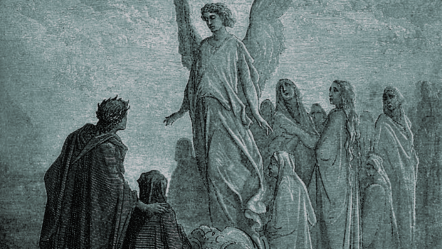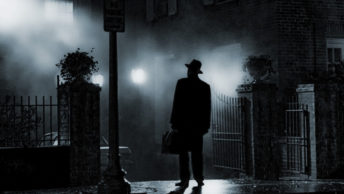I recently came across a memorable article from my archives. According to an old issue of the New York Times Clive James was dying but as I remember it, he was very good-natured about it. Once a three-fisted drinker and smoker, Mr. James, 75, was found to have leukemia in 2010, with the added complications of emphysema and kidney failure. His condition was irrevocable.
I am sure this former literary critic fooled his doctors because they did not close his casket for nine more years. James was a polymath, who found his way from a poor, sewer-free suburb of Sydney, Australia, to become a beloved writer, entertainer and figure in British life.
What interested me most was his relaxed and almost casual way of looking back at his life while at the same time contemplating what the future might have in store for him. As the Times so lyrically put it then, he can look back with astonishment and amusement, and look forward with a trenchant eye. I am still amazed at how much at peace and detached he was from the reality that his life was nearing its completion. From what I could gather, the only organized religion, he ever espoused was being a liberal social democrat.
My entire life I was taught either overtly or subtly to fear my death because of the serious Judgments that followed each human being’s demise. Of course this was during the old days that the proponents of Vatican II have deliberately sought to strike from the Church’s consciousness. Their laudable goal was to replace it with a more kind, gentler Church that appealed to more people and did not tax them with too many rules and strictures.
Ever since the 1960’s I have found my soul torn in two between these two sales pitches. While the one used Hell and Damnation to terrify and frighten us, the other uses a Big Easy way of getting saved without a great deal of effort on our part. While the 10 Commandments reigned in one, the Corporal Works of Mercy seem to have the big edge in the other.
The first seemed to imply that only a small percentage of God’s creation actually went to Heaven. Their Sears Catalogue of serious sins seemed to second that opinion. When you are 16-years-old and have a body flowing with relentless hormones, a pretty girl can easily morph into a vehicle headed down the road to Hell and damnation. The new Church has almost eliminated the idea of personal sin from our vocabulary, replacing it with some vague notions of group moral infractions. This explains why so few people feel the need to go to Confession or what we now call Reconciliation.
While the first attitude has given us generations of stiff, sour and basically neurotic Catholics, the other has opened the gates for an exodus of faithful who seek an even easier fulfillment in another religion. A number of my high school classmates seemed to have taken that road. The easier way has also given us the breakdown of marriage and the family, sexual promiscuity and a confusion of what even constitutes a marriage. That pretty girl who used to turn my head is now seen as a more aggressive object of pleasure and delight.
This conflict still tears at my innards sometimes. The first left me with a terrible unease that I do not miss at all while the second one gives me not much more than uncertain truths, supported by a world of doubts. James did not seem bothered by any of this. He simply says: I should have been a more honorable man, but the regrets don’t overwhelm me. They’re such a good subject for writing.
My bifurcated soul is akin to the Broadway musical A Year With Frog and Toad, written by brothers Robert (music) and Willie Reale (book and lyrics). It was based on the Frog and Toad children’s stories written and illustrated by Arnold Lobel. The musical follows the woodland adventures of two amphibious friends, a worrywart toad and a perky frog, with their assorted colorful hopping, crawling and flying companions, over the course of a year.
At times my old faith makes me fearful like Mr. Toad and my new faith brings out more the joy and wonder of being alive like Mr. Frog. Both seem valid to me. I am fearful of letting go of the former while frustrated for not being able to fully enjoy the latter more.
On a personal note my then 12-year-old granddaughter played the Frog in a St. Louis presentation of this musical in 2013. To alleviate my stress I have taken it upon myself to study for the most important final exams of my life. I am not kidding when I say I still study for everything, including my thrice-annual blood test.
James did address his own eschatology saying: An afterlife? Both Virgil and Dante set some of their greatest work in another world. But Shakespeare didn’t, and his is the attitude I prefer. There is enough of heaven in a hedgerow, and enough of hell in the perfidy of man.
I believe in Heaven and Hell but with a bit of a twist. I have written several times in this space about Heaven and my high hopes to be able to walk one of its beaches someday and embrace all the people who have meant something special to me in my life, including even those who may have shared nothing more than a long conversation. It has taken me a long to realize this time but the only way for this to be come a reality is for me to put my absolute trust in God
My view on Hell is optimistically cautious. An old Jesuit friend once told me–it was two weeks after his ordination in 1969–that as Catholics we had to believe in a Hell but we did not have to believe that anyone, other than Lucifer and his minions ever went there. I like the sound of that because it makes a certain kind of sense. Other than Mary and Jesus, the Angels are the only ones who had a perfect choice between good and evil. I do not believe human beings always fully understand the gravity of their decisions.
Oh, we may feel that something may not be right about an action but under the pressure of any moment, most people can think of a plausible rationalization that would provide a reasonable doubt in God’s moral court in many things. The eternal sentence of Hell is the game breaker. Lucifer was so proud that literature has quoted him as wont to say that he would rather reign forever in hell than serve in heaven.
This tells me that he knew the score on his level. How many human beings ever get that clear a choice! Again this is one of my uncertain truths. Purgatory makes more sense to me. We are all imperfect beings. The Book of Genesis and any daily newspaper attest to that fact.
We must be perfect to see God, unless we have been purified. One need only look around, read the daily headlines, or listen to the five o’clock news to realize that extreme suffering is everywhere. Suffering, especially for the elderly is a constant. Could not our daily lives serve as a purifying gift from the Lord? Again, this is an uncertain truth in my book.
I could be completely wrong on this. This prompted me to explore what my vision of Purgatory might be like. I wrote drafts of two different plays. The first one used the NYC Subway to explore the boredom of life without God. In my play different people would ride the subways, getting on and off at different stops. It was the pain of loss and the boring emptiness of that kind of travel without reaching a destination…until one comes to a stop and St. Peter is waiting for us. I never really finished this one and I cannot even remember its title.
When that one didn’t work, I wrote Gaby’s People. Using a massage spa as my venue for healing, understanding and reconciliation with the absolute truth of one’s life, I found it more consistent with my understanding of God as an all-merciful and all-loving God. I saw it as a place of forgiveness, self-awareness and redemption, rather than a place of pain and temporal torment. It is probably the place most people will wind up after this life is done.
Unlike my first three successful theatrical productions, this one did not resonate well with my theatre group. The Subway play did not even merit a reading. But I had a great deal of fun in writing both of them. Instead of the traditional habitat of punishment and suffering for sin, my Purgatory in both plays was more to enlighten the person of his or her weaknesses and negative behaviors that separated each of them from their final destination. Once they realized the wrong of what they had done, they could accept it and open their minds and hearts to God’s forgiveness.
Most people I know never think of any of the above. When their time comes they seem to easily adapt an attitude like Clive James…confidant…self-satisfied and ignorant of what may follow. I don’t know if that’s the kind of bliss I long for…but that’s just another one of my uncertain truths.








